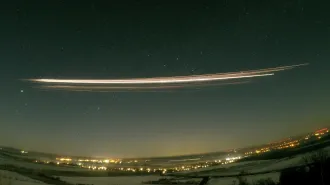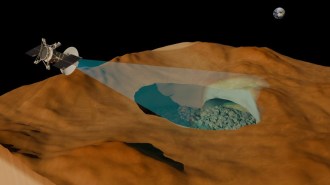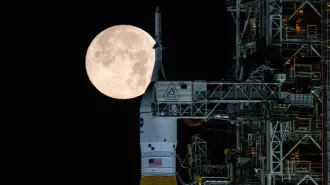Call it the hit that missed. The object that generated a fireball above Jupiter’s cloud tops on June 3 (SN Online: 6/4/10) left no mark on the giant planet, Hubble Space Telescope images released June 16 confirm. The Hubble images were recorded a few days after the fireball’s appearance using the observatory’s new Wide Field Camera 3.

Ground-based telescopes also found no bruise in the aftermath of the apparent collision, which was recorded by two amateur astronomers.
The absence of a dark bruise on Jupiter strongly suggests that a chunk of space debris most likely burned up as a meteor above the planet, rather than plunging into the Jovian atmosphere, says planetary scientist Heidi Hammel of the Space Science Institute in Boulder, Colo.
When fragments of Comet Shoemaker-Levy 9 struck Jupiter in 1994, and after an object, likely an asteroid, collided with the giant planet last year, plumes of dark, sooty material dredged up from beneath the planet’s outer cloud layer rained back down to create (SN Online: 6/2/10), smudges that could be seen in ultraviolet and visible-light photographs.
But this time the object may have been too small — less than 10 meters in diameter — to resist burning up above Jupiter, says Carey Lisse of the Johns Hopkins University Applied Physics Laboratory in Laurel, Md. The smaller the body, the more easily that the heat generated by a collision with Jupiter’s upper atmosphere can penetrate the object’s core, making it more vulnerable to burning. It’s also possible that the body may have dealt a glancing blow to the planet, bouncing off the atmosphere and skipping back into space, he adds.







